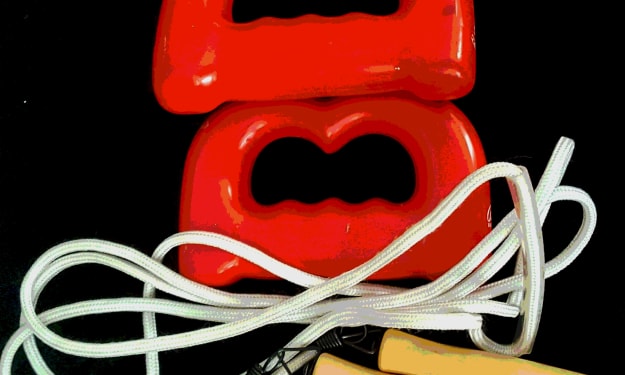Coffee: Elixir of the Driven
Is coffee the new alternative medicine?

You may think it’s a stretch to refer to coffee as an elixir; but, what about as an alternative medicine? I would consider that a stretch too had it not been for different studies on the impact of coffee (or rather) caffeine on the body.
Hearing the words impact and health, in the same breath, we tend to think the worse.
Well, let’s look at the information we heard about coffee. We know caffeine keeps some of us awake. That is insomnia. Surely, there are other reasons for insomnia. For many, it is caffeine.
Lack of sleep may not be life-threatening; but it can affect (impact): our energy level, ability to focus and quality of work at home or on the job.
However, if our job requires us to operate industrial machinery, then lack of sleep has potential to place us in harm’s way.
Caffeine: Stimulant or Narcotic?
It is easy to see why this question is asked. Caffeine makes us feel a certain way after a cup or two; somewhat like wine, somewhat like a narcotic.
Yes. Like a narcotic. Most pain killers of opiate origin such as, oxycodone, morphine or methadone are known to “act upon specific receptors in the brain and spinal cord to ease pain” (WebMD, Opiate Pain Relievers for Cancer Pain).
What does this have to do with coffee? Good question.
Dr. Sergi Ferré cites, “caffeine is a psychostimulant with the same effects as […] nervous system psychostimulants cocaine and amphetamine” (The National Academies of Sciences Engineering Medicine: Caffeine in Food and Dietary Supplements: Examining Safety; Workshop Summary (Ch. 6 p.89 2014).
Coffee Addiction: Is it possible?
A once-avid coffee drinker myself, I viewed drinking a cup of coffee daily as a routine; not an addiction. We can nitpick semantics: habit, routine, ritual etc.; but the typical behavior usually associated with drug addiction does not show in people who drink coffee on a regular basis. So how can daily drinking of coffee be considered an addiction?
There is one element of daily drinking coffee experts believe qualifies the discussion of possible addiction: caffeine withdrawal symptoms.
I admit. The first time I found out there was such a thing as withdrawal from coffee (or rather, caffeine) is the morning I got to my job and started working on a project. Two hours in, I had the most excruciating headache. A co-worker saw me massaging my temples.
She asked, “Have you had breakfast?”
“Yeah.”
“Did you have coffee?”
“No. I didn’t stop this morning for coffee.”
“Withdrawal headache.”
“What?”
“Trust me! Grab a cup of coffee! You’ll see!”
I did. When she checked on me later that day. The headache was gone without me taking a painkiller. From that point on, I weaned myself from daily cups of coffee to an occasional cup of coffee.
Natural Sources of Caffeine
- Cocoa beans
- Tea leaves
- Coffee beans
- Yerba mate (a drink made from leaves belonging to the holly group).
We see the coffee bean is not the sole carrier of caffeine; but coffee has our attention (for enjoyment) and the attention of the experts for caffeine withdrawal symptoms:
- Irritability
- Headache
- Depressed Mood
- Anxiety
- Fatigue
Looking at these symptoms, they can happen under any number of circumstances:
- Failed plans
- Not drinking enough water
- A breakup
Think about how you are before you have your coffee in the morning… and people are trying to talk to you. See?
What is the significance about these withdrawal symptoms?
They happened during studies on the effects of caffeine on the central nervous system.
Among the panelists of speakers, Roland Griffiths and Charles O’Brien explained the evidence of caffeine withdrawal symptoms is the reason it is classified as a dependence syndrome in the Diagnostic and Statistical Manual of Mental Disorders, Fifth Edition (DSM-5); but not as an addiction. Lack of studies on caffeine addiction is the reason why there is no official listing in the DSM-5. (The National Academies of Sciences Engineering Medicine: Caffeine in Food and Dietary Supplements: Examining Safety; Workshop Summary (Ch. 6 p. 90 2014).
What is the good thing about coffee?
Coffee has naturally occurring antioxidants and diterpenes that may protect against:
- Certain cancers
- Parkinson’s disease
- Dementia
- High mortality rate
More Good News for Coffee Drinkers
Coffee has potential to:- Improve thinking ability
- Decrease risk of depression
- Act as a pain killer
At the end of the day, a hot cup of coffee and a good conversation… priceless.
About the Creator
J.T. Wellington
J.T. Wellington loves to read, research, write and chat in random order on topics people are subject to talk about offline every day.






Comments
There are no comments for this story
Be the first to respond and start the conversation.